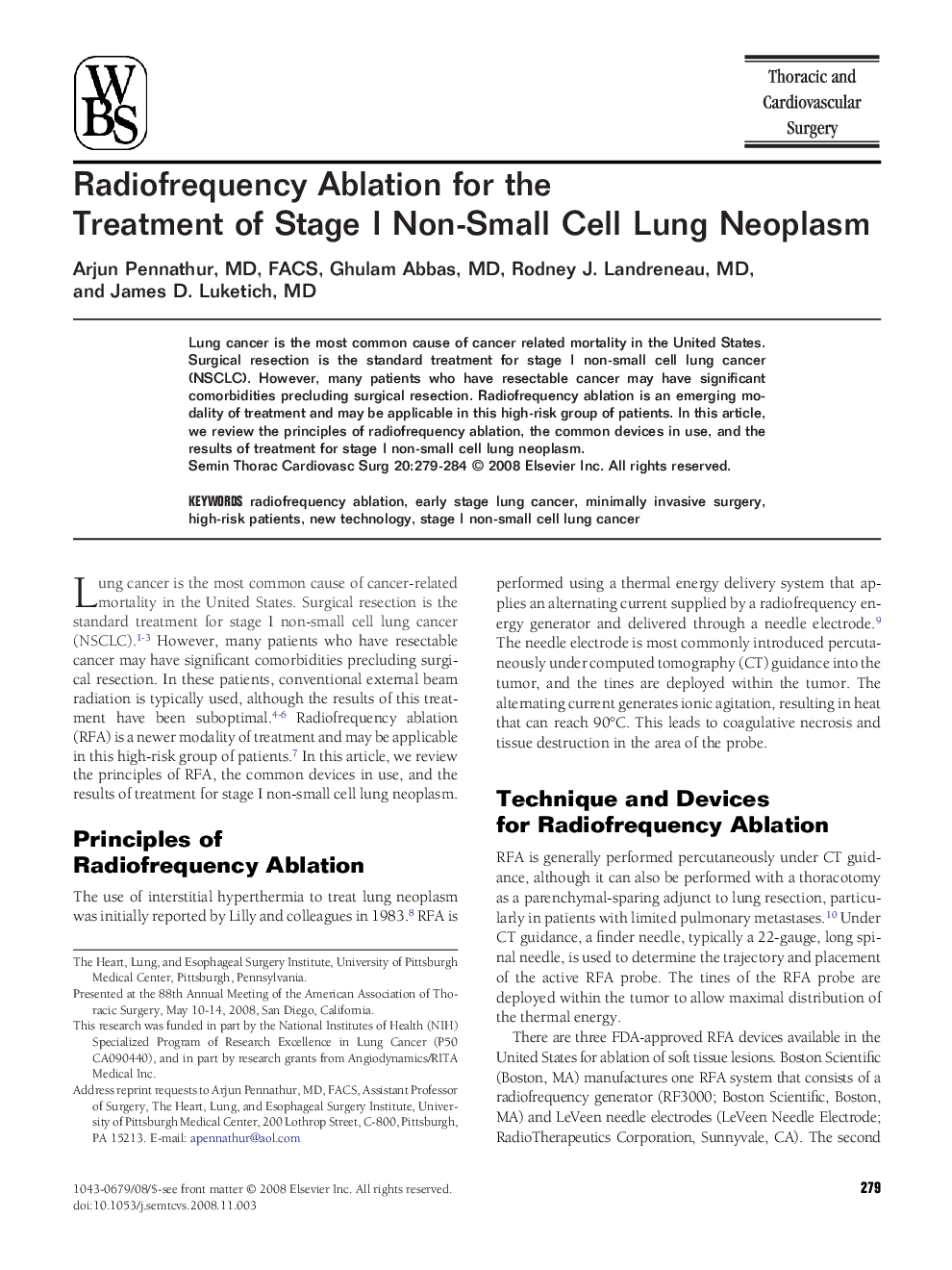| Article ID | Journal | Published Year | Pages | File Type |
|---|---|---|---|---|
| 3025570 | Seminars in Thoracic and Cardiovascular Surgery | 2008 | 6 Pages |
Abstract
Lung cancer is the most common cause of cancer related mortality in the United States. Surgical resection is the standard treatment for stage I non-small cell lung cancer (NSCLC). However, many patients who have resectable cancer may have significant comorbidities precluding surgical resection. Radiofrequency ablation is an emerging modality of treatment and may be applicable in this high-risk group of patients. In this article, we review the principles of radiofrequency ablation, the common devices in use, and the results of treatment for stage I non-small cell lung neoplasm.
Keywords
Related Topics
Health Sciences
Medicine and Dentistry
Cardiology and Cardiovascular Medicine
Authors
Arjun MD, FACS, Ghulam MD, Rodney J. MD, James D. MD,
